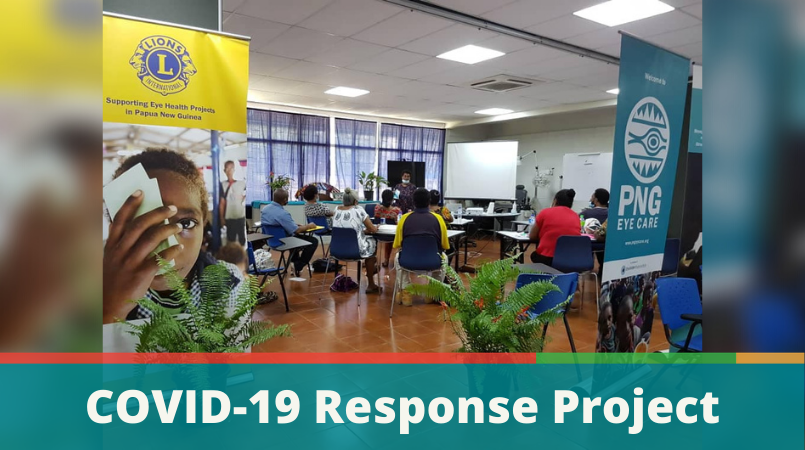
The World Health Organization (WHO) is bringing about assistive products and technologies closer to communities where people can accessibly access.
A training on Assistive Technology products in Papua New Guinea was launched on Tuesday. The WHO supported pilot project involves PNG, Iraq and India.
The assistive products and technologies such as walking aids, reading glasses, mobility aids will be made available for those who need them in the communities.
Dr Anna Maalson from WHO said this is part of the universal health coverage agenda and by 2030, it will ensure that can access the essential services.
“This pilot project came as a genesis of a COVID-19, as we saw around the world people with disabilities had less access to the assistance they need due to the restrictions. This restrictions by the government includes, travel restrictions, mobility restrictions and services closing,” she said.
WHO has collaborated with the NCD Provincial Health Authority and PNG Eye Care Foundation to provide primary eye care services to people with disabilities. They will work through the NCD Health Care clinic services.
Dr Maalsen said the project involves training staff through E-learning: “They have tablets to learn how to do their assessments and screenings for the assistive products in the clinics and then prescribe those aids for those people to take home with them.”
General Manager of PNG Eye Care, Benjamin Zuvani who was the lead facilitator of the workshop explained the details of the training, which started in November last year.
They had clinicians from six clinics - 9-Mile, Gordons, 6-Mile, Morata, Tokarara and Lawes Road.
“In terms of eye glasses, we train them on the basics and they try it out. If a person can make do with the glasses they can take home for use, if not they refer them to the Port Moresby General Hospital or other clinics that provide these services,” Mr Zuvani said.
He said it is a training that will enable health workers to provide a first stop before people can go see a specialist if the need arises.
“PNG Eye Care and partners also want to work with rural communities in Central Province through the provincial health authority at the next stage of the operation.”
